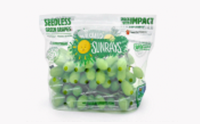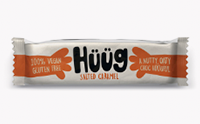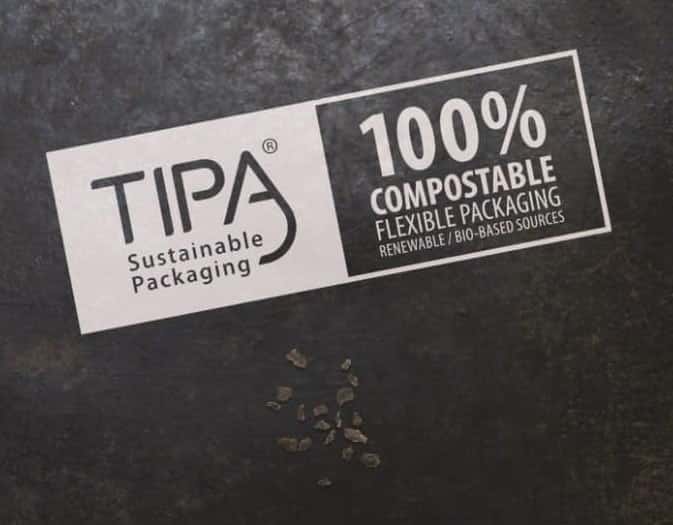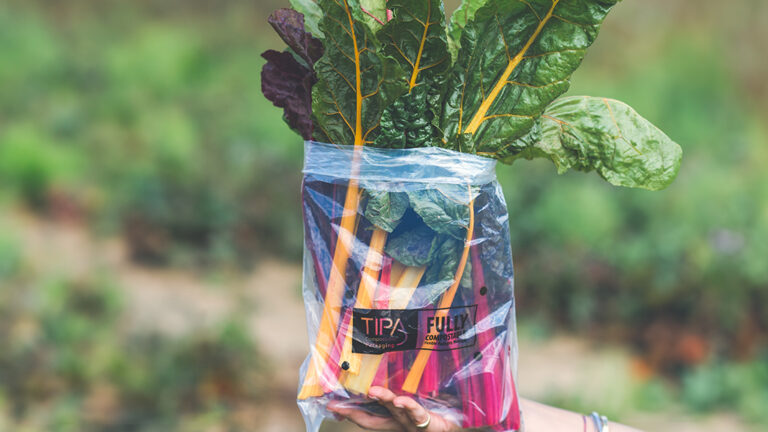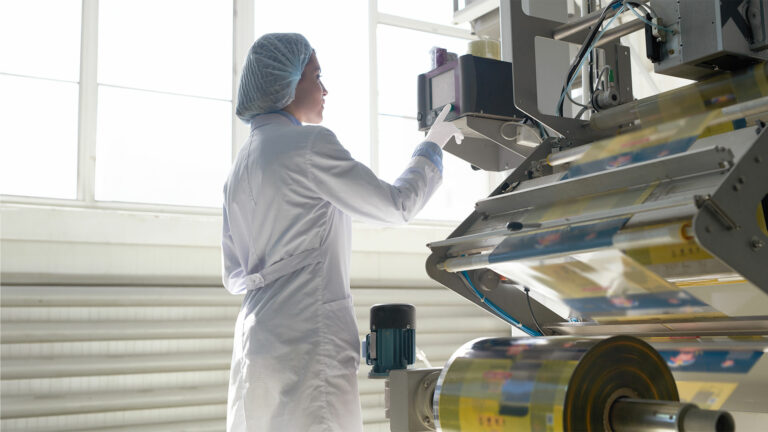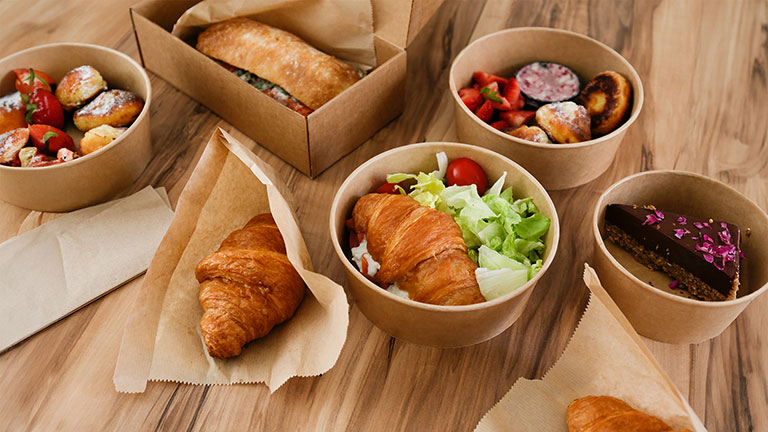Each year at least 8m tonnes of plastic waste ends up in the ocean and it is predicted that by 2050 there will be more plastic than fish in the sea. According to Ilana Taub, co-founder of Snact, a London eco-startup that creates snacks from surplus fruit, quoted in The Guardian, “It’s crazy, when you think how much plastic has invaded our lives. It’s easy and [food] safe, but not feasible in the long run. We need to find alternatives.”
In a blog post earlier this year we described how composting addresses both food and packaging waste, and also how Snact makes an excellent use case for a creative and sustainable solution to food waste.
Since then, as Ilana described in the article in The Guardian, Snact have launched their delicious fruit jerky in compostable packaging from TIPA, with an announcement saying, “Our new innovative packaging, developed by Israeli start-up TIPA, is just as durable and impermeable as ordinary plastic – but it biologically decomposes within just 180 days and becomes a fertilizer for soil, behaving similarly to an orange peel.”
Packaging products sustainably
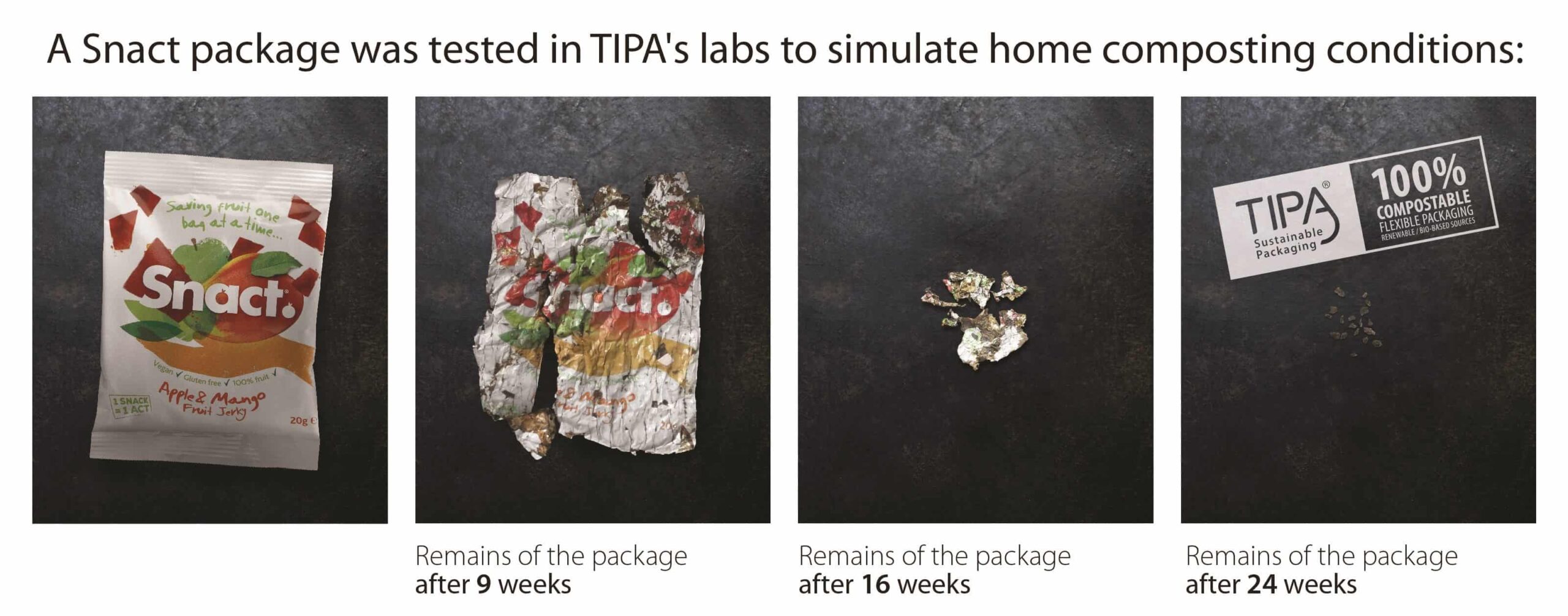
The announcement continued, “Since our inception we’ve been trying to come up with a way to package our products sustainably. We launched our previous eco friendly food packaging in November last year with traditional plastic because we struggled to find an environmentally-friendly option that was food safe and had the functional properties required. Our customers – Snactivists – wanted to see us leave plastic packaging behind and now we have the perfect solution to do this. This development will ensure our packaging matches the ethos of the company: promoting sustainability and tackling the causes of waste – now reducing packaging waste as well as food waste. It is a big step in making our business sustainable in every way.”
As Ilana described it in The Guardian, “We have found a way of being disposable without causing environmental damage.”
New materials for a new plastics economy
In the same feature article in The Guardian described above, Rob Opsomer, who leads the Ellen MacArthur Foundation’s new plastics economy drive, argued that, “Shifting towards new materials that enable recycling or composting is one of several strategies to redesign packaging applications.”
The new plastics economy initiative aims to overcome the limitations of today’s incremental improvements and fragmented initiatives, to create a shared sense of direction, to spark a wave of innovation and to move the plastics value chain into a positive spiral of value capture, stronger economics, and better environmental outcomes.
Compostable packages not only have the potential to divert massive amounts of plastic packaging from landfills, but also to be used to create nutrients for the soil via the creation of compost, which in return could help grow more crops. If compostable packaging, like TIPA’s packaging, is also partially bio-based, it can assist to further decouple plastic from depleting and polluting fossil fuels.









